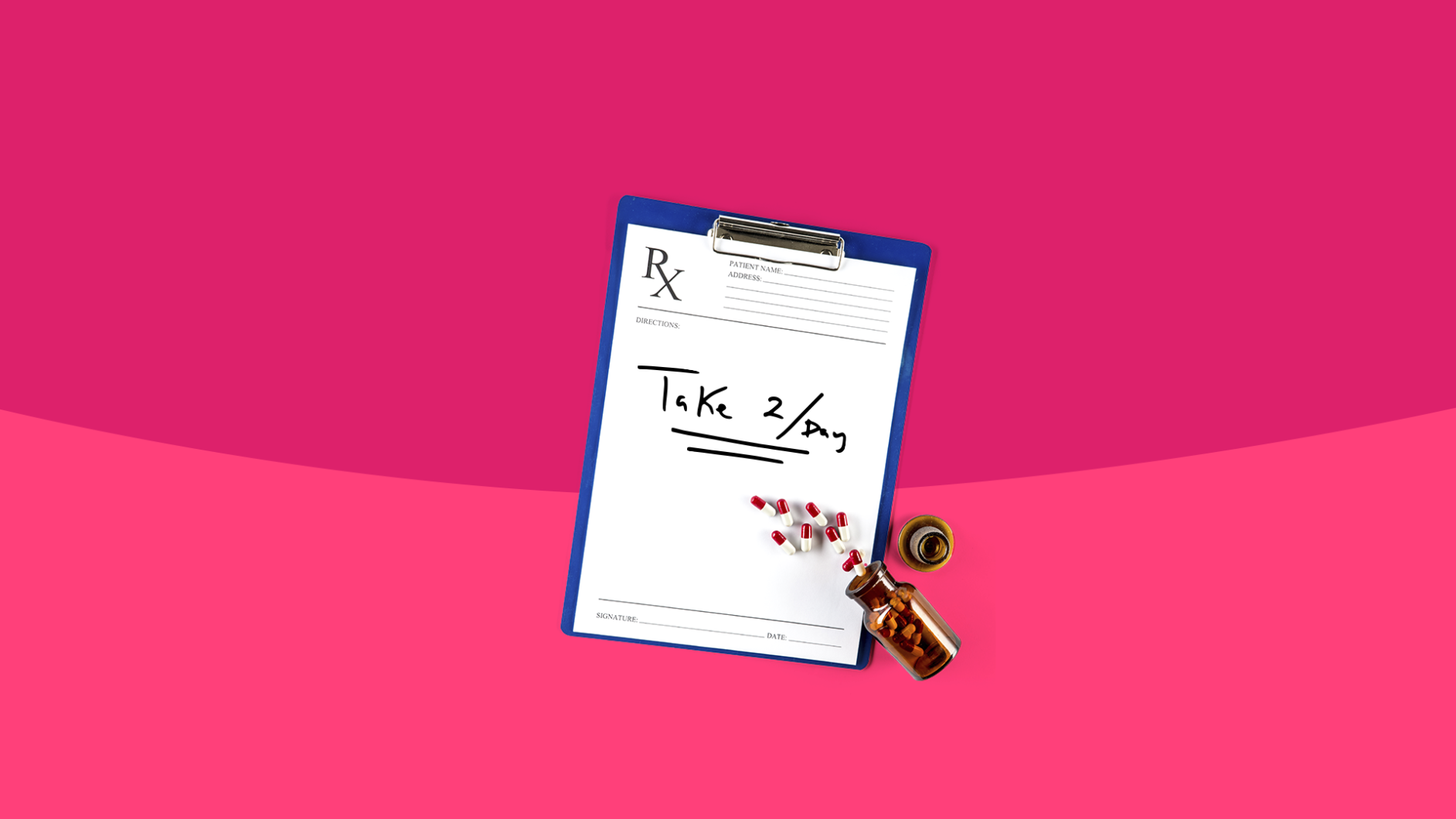Key takeaways
Medication non-adherence is a significant issue, with the CDC estimating that medications are not taken as prescribed 50% of the time.
One of the top reasons for medication non-adherence is the high cost of prescription drugs, though solutions like discussing cheaper generic alternatives with healthcare providers or using savings coupons can alleviate this barrier.
Employing methods such as using pillboxes, setting alarms, or leveraging digital reminders can help with forgetfulness.
Personal opinions, misunderstanding the purpose of medication, unpleasant side effects, accessibility issues, social stigma, and the desire for natural alternatives contribute to not following doctors’ orders.
Whether it’s due to forgetting to take it, skipping doses, or flat out not even filling the prescription altogether, the Centers for Disease Control and Prevention (CDC) estimates that medications are not taken as prescribed 50% of the time.
Close to one-third of patients in the United States choose to ignore their doctor’s orders and forgo even filling their prescription at the pharmacy. Medication non-adherence causes roughly 125,000 deaths each year and costs the healthcare system a fortune. If patients were to follow their medication instructions, the healthcare system could save anywhere from $100 to $300 billion as it wouldn’t have to take on the cost of treating ailments and conditions that adherence to proper medication regimens could have prevented.
So how do we solve it? Well, as a patient, the first step is knowing why you’re ignoring your healthcare provider’s plan for you. Here are the top 10 reasons why patients don’t stick to their medications along with tips on how to change these medication adherence rates.
1. It’s too expensive
Today’s ever-changing healthcare landscape certainly validates this reason for many people, yet the costs of not taking prescription medication can be even more expensive than your pills themselves. Oftentimes this issue can be solved by a simple conversation between your doctor or pharmacist, as less expensive generic alternatives might work just as well.
If your copayment with insurance is still too high, a quick search on SingleCare can help you find savings on your medications as well. Our coupons are always free, so you can continue to save money on each refill.
2. You forget to take your pills
It can be hard to implement a new routine into our lives, and taking medication might be out of the ordinary at first. Try using a traditional pillbox to keep track of your prescriptions, and leave it on the counter so you can see it. Some people like to set alarms to remind them to take their dosage; there are also apps and digital pillboxes to help alert you when it’s time for your meds.
3. You let personal opinions guide you
Some patients recount that seeing “in your face” pharmaceutical advertisements makes them want to resist medication adherence. Others stop taking medication because they don’t think they need it. Or, they disagree with using prescriptions on principle. Obviously, these types of mindsets can be deeply rooted, so talking with your doctor about alternatives to managing your health conditions can be incredibly valuable.
4. You don’t understand the purpose of the pills
Have you found that you’re non-adherent to medication when you don’t really know what it’s for? Before leaving your appointment, ask your doctor to explain why you’re being prescribed this particular drug and find out how it will help you. A pharmacist can also provide patient education when you go to fill your prescription. You can even request a full medication review to understand how a new medication works, how to take it, and whether it interacts with any of your current medications.
5. There’s difficulty in accessing a pharmacy
Sometimes disabilities or simply a lack of transportation can deter patients from filling and refilling their prescriptions. Studies have shown that utilizing a mail-order pharmacy service can greatly help with medication compliance when accessibility is a challenge.
RELATED: How can I get my prescriptions delivered?
6. The side effects are unpleasant
A life-saving prescription might come along with side effects that are severe enough to impact your daily life. Rather than skipping the medication entirely, your doctor might be able to recommend another option with less adverse effects. Sometimes a change in diet or lifestyle can even help to minimize any discomfort.
FOR PHARMACISTS: How to explain side effects without scaring patients
7. You’re embarrassed to take your pills
Unfortunately, there seems to be a social stigma attached to “popping pills” and many people find themselves feeling uncomfortable if it’s known that they take a prescription drug. If this becomes a reason for non-compliance with your doctor’s orders, try taking your medication in a bathroom or private place.
8. You want to try a natural alternative first
While there can be some benefits to other types of patient care, including a holistic approach, you should always follow up with your doctor before taking an alternative supplement in lieu of your prescribed medication.
9. You feel better, so you think you don’t need it
This line of thinking can be quite dangerous, as stopping your medication prematurely can lead to a host of health conditions. Studies have shown that patients not finishing a full course of prescription treatment can lead to chronic diseases, as symptoms return and worsen, as well as having effects on other parts of their body that were previously unrelated to their disease or illness.
Above all, it’s important to trust your healthcare provider to provide the right treatment regimen for you. If you have any concerns about medications prescribed, bring it up before going without.
- CDC grand rounds: Improving medication adherence for chronic disease management — Innovations and opportunities, Centers for Disease Control and Prevention (2017)
- Medication adherence: Helping patients take their medicines as directed,
- Public Health Reports (2012)
- Direct-to-Consumer pharmaceutical advertising, Pharmacy & Therapeutics (2011)
- Can mail-order pharmacy improve medication adherence? Pharmacy Times (2011)




